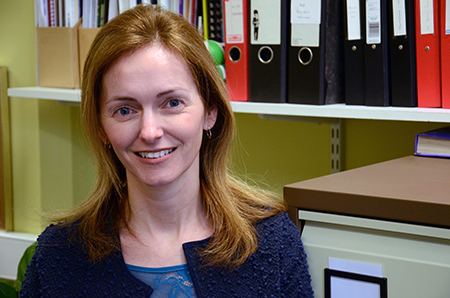 Dr Fiona Rowe: “Visual impairment is a common consequence of stroke, yet our research shows that thousands of stroke patients with visual problems do not receive the care and support they need”
Dr Fiona Rowe: “Visual impairment is a common consequence of stroke, yet our research shows that thousands of stroke patients with visual problems do not receive the care and support they need”
More than a quarter (26%) of stroke survivors living with visual impairment do not receive adequate support, new research from the University of Liverpool reveals.
The findings of the report, Care provision and unmet need for post stroke visual impairment, funded by the Stroke Association and Thomas Pocklington Trust, show that a third of practitioners do not supply vision information to patients or carers, despite an estimated three in five (60%) stroke survivors in the UK living with visual impairment.
The research findings reveal:
- One fifth (20%) of health professionals (working with stroke patients) reported their knowledge of visual problems as fairly poor or very poor
- Fewer than a quarter (22%) of health professionals use vision screening tools to assess stroke patients
- Fewer than half (46%) of health professionals reported using a vision care pathway for stroke survivors
- The significant impact of visual impairment on stroke survivors’ lives can be far reaching; including loss of confidence, reduced mobility, reading difficulty, increased collisions/bumps and social withdrawal
Dr Fiona Rowe from the University of Liverpool was the chief investigator of the study. She said: “Visual impairment is a common consequence of stroke, yet our research shows that thousands of stroke patients with visual problems do not receive the care and support they need. It is crucial that health care services are fully aware of visual problems after stroke, and provide patients with the best possible support. One ‘size’ does not fit all.”
The Care provision and unmet need for post stroke visual impairment report recommends:
- increased integration of orthoptists [1] within core stroke teams
- early vision assessment and post discharge support for stroke survivors
- improved awareness about visual problems after stroke among healthcare professionals and the public
Dr Dale Webb, Director of Research and Information at the Stroke Association, said: “Stroke is devastating, and many stroke survivors who are recovering from one of the most frightening experiences of their lives face the additional challenge of visual impairment. We all value our sight; it’s the sense most people fear losing more than any other.
“We recognise that health care providers have to make difficult decision about their funding. However, improved vision care for stroke survivors would help patients to regain mobility and independence, return to the workplace and make their best recovery possible following a stroke.”
Catherine Dennison, Head of Research – Health and Wellbeing, of Thomas Pocklington Trust said: “We welcome the findings from Dr Rowe’s research which brought together existing and new information about the high numbers who experience vision problems after stroke, the impact of this and the gaps in the care they receive. This research crucially highlights how care can be improved and we would like those commissioning and managing stroke services to take note and consider vision to a greater extent.”
